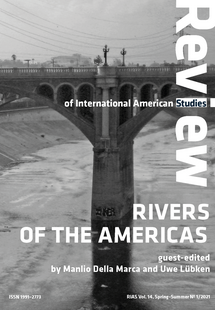Working Lives on the Mississippi and Volga Rivers. Nineteenth-Century Perspectives
Working Lives on the Mississippi and Volga Rivers. Nineteenth-Century Perspectives
Author(s): Dorothy Zeisler-VralstedSubject(s): Human Geography, Environmental Geography, Social history, 19th Century, Identity of Collectives
Published by: Wydawnictwo Uniwersytetu Śląskiego
Keywords: rivers; labor; race; barge hauler; African American;
Summary/Abstract: Throughout the nineteenth century, major rivers assumed multiple roles for emergent nation-states of the western world. The Thames in England, the Seine in France, and the Rhine in Germany all helped to fuel a growing sense of national identity. Offering a sense of unity and uniqueness, these rivers were enlisted by poets, artists, and writers to celebrate their country’s strengths and aesthetic appeal. The Mississippi and Volga Rivers were no exceptions to this riverine evolution. At the same time, however, less vocal populations experienced the rivers differently. To African Americans—enslaved and free—laboring on the Mississippi offered a freedom of movement unknown to the land-bound. While employed on steamships, African Americans escaped vigilant overseers and the possibility of escaping bondage. Still, the work was demanding and relentless. To the burlaki, the Volga was taskmaster and nurturer. For both groups, laboring on the rivers resulted in connections that were immediate, intimate, exacting, often tedious and brutal, concomitant with marginalized lives, consigned to society’s fringe. Still, the lives shaped by working on these rivers, produced rich cultures revealing alternative riverine histories. In these histories, the rivers possessed an agency, enshrining the ambiguity of the human relationship with the environment; a complexity often missing in the national narratives.
Journal: Review of International American Studies
- Issue Year: 14/2021
- Issue No: 1
- Page Range: 77-106
- Page Count: 30
- Language: English

